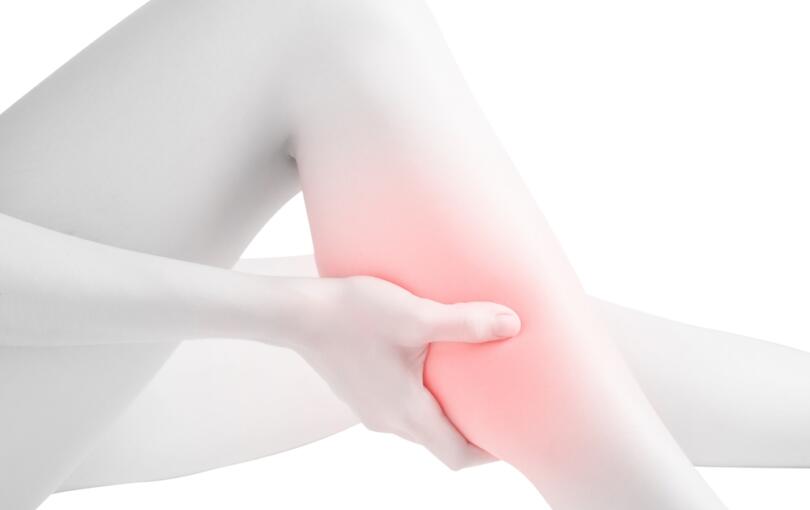Leg cramps is one of the challenges faced by women in pregnancy. Normally, a pregnant woman experiences it during her 2nd and 3rd trimester, though, a few women report pains and aches during the 1st trimester. This is mostly due to hormonal modifications and expansion of uterus. This article will tell you the ways to prevent it during pregnancy.
When does a pregnant woman starts to experience leg cramps?
Muscle spasms and leg cramps are reported by pregnant women in the 3rd trimester. It is felt mostly during the night time. Most pregnant women experience difficulty in getting a sound sleep due to tightness in foot, calf, and other areas. A few women also experience such issues when they sit at one place in the same posture for prolonged period.
How is a leg cramp experienced during pregnancy?
Leg cramp during pregnancy is characterized as painful instinctive muscle contraction. It impacts the foot, and calf during pregnancy. This pain can be very excruciating. It mostly strikes at night at the time of the 2nd and 3rd trimester.
Though you may not completely prevent leg cramps, but there are a few preventative measures such as stretching, adopting an active lifestyle, and drinking a lot of water, that can give you relief from the symptoms.
What Are The Causes Behind Leg Cramps?
Before we talk about the preventive measures to deal with this issue, you should first learn what makes it happen. Below we have stated a few reasons that results in occurrence of leg cramps during pregnancy.
Circulation changes: Pregnancy reduces blood circulation in the body. This happens due to overactive hormones. The volume of blood increases in the later trimester that leads to slow blood circulation. The result is that a woman experiences cramping and swelling in the legs.
Dehydration: Dehydration is another reason that causes leg cramps in pregnancy. It is required to keep your body adequately hydrated by drinking eight to twelve cups of water daily.
Weight gain: Increase in the weight is common in pregnant women as it includes the weight of the body too. This gain in weight puts strain on the blood vessels and nerves of the body. Staying active and maintaining a healthy weight can definitely help you prevent leg cramps.
Fatigue: Pregnancy makes a woman feel fatigue. Leg cramps result when the muscles get fatigued due to the added pressure on leg muscles.
Lack of calcium or magnesium: Less than daily recommended dietary intake of calcium and magnesium can also cause cramp in the leg. Compensating this deficiency in the form of supplements is a good option. However, if you are taking prenatal vitamins, then you may not require any additional supplement.
Symptoms of leg cramps
Some of the signs of experiencing leg cramps are:
- An intense pain in the legs at the time of moving or standing
- Chronic swelling
- Warm skin close to the impacted region
Preventive measures to prevent leg cramps
Stretching your calf muscles before you sleep: Performing calf stretches before sleep time can help ease leg cramps.
Follow the below steps to perform it correctly:
- Stand close to wall with your face in front of the wall
- Place both the hands in front on the wall.
- Bring your right foot behind. While your heels remain on the floor, bend your right knee. Keep your left leg straight. Feel the stretch in the calf muscles.
- Hold for about thirty seconds.
- Follow the above steps with the other leg too.
Exercise: Adopt an active lifestyle. This will help a lot in reducing the pain caused due to leg cramps. Once your doctor approves, you can perform pregnancy-safe exercises such as walking, swimming and prenatal yoga. All these activities keep your weight under control, enhance blood circulation and prevent muscle stiffness.
Take a calcium and magnesium supplement: Consume foods rich in magnesium and calcium such as dairy products, leafy greens, whole grains, dried fruits, beans, seeds and nuts.
Stay hydrated: Drinking atleast 8 to 12 glasses of water daily during pregnancy to prevent dehydration and leg cramps.
Apply heat: Apply some heat to the cramping muscle to soothe stiffened muscles, encourage blood flow and get relief from leg cramps.
Massaging the area: Perform a self-massage or a prenatal massage to ease the pain. Get assistance from an experienced therapist who has specialization in curing leg cramps in pregnant women.
When should you see a doctor?
It is advised to obtain immediate medical assistance when experiencing acute swelling in legs, pain while walking, or inflamed veins. All of these can contribute towards a blood clot.
Also read: Toothache during Pregnancy: Causes & Treatment
Conclusion
Leg cramps are a very unpleasant symptom that a woman experiences during her pregnancy. However, most pregnant women do not have any escape from this trouble. Preventing the causes and implementing the above measures will definitely improve your condition.

